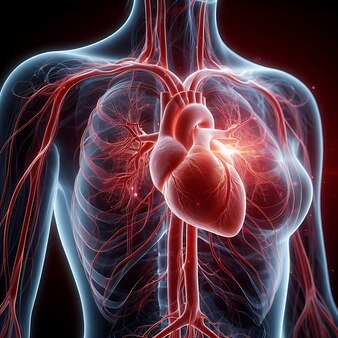Cardiomyopathy

Introduction to Cardiomyopathy
Cardiomyopathy is a group of diseases that affect the heart muscle, leading to diminished heart function. This condition can result in heart failure, irregular heartbeats (arrhythmias), and other serious complications. Cardiomyopathy can be inherited or acquired due to various factors, including other diseases or lifestyle choices.
Types of Cardiomyopathy
Dilated Cardiomyopathy (DCM)
Dilated Cardiomyopathy is characterized by the enlargement of the heart’s ventricles and a decreased ability to pump blood. This type is the most common and can be caused by genetic factors, alcohol abuse, and infections.
Hypertrophic Cardiomyopathy (HCM)
Hypertrophic Cardiomyopathy involves the thickening of the heart muscle, particularly the ventricles, which can obstruct blood flow and affect heart function. It is often hereditary and can lead to sudden cardiac arrest, especially in young athletes.
Restrictive Cardiomyopathy
Restrictive Cardiomyopathy is the least common type and is characterized by stiffened heart walls, which prevent the heart from filling properly with blood. It can result from conditions like amyloidosis or sarcoidosis and leads to heart failure.
Arrhythmogenic Right Ventricular Cardiomyopathy (ARVC)
Arrhythmogenic Right Ventricular Cardiomyopathy is a rare type that affects the right ventricle, replacing heart muscle with fatty or fibrous tissue, leading to arrhythmias and increasing the risk of sudden cardiac death.
Causes of Cardiomyopathy
Genetic Factors
Many forms of cardiomyopathy are inherited, meaning they are passed down through families. Genetic mutations can affect the proteins that are essential for heart muscle function.
Lifestyle Factors
Excessive alcohol consumption, drug abuse, and prolonged exposure to toxins can damage the heart muscle, leading to cardiomyopathy.
Medical Conditions
Other diseases and conditions, such as chronic high blood pressure, diabetes, thyroid disorders, and infections like myocarditis, can contribute to the development of cardiomyopathy.
Symptoms of Cardiomyopathy
The symptoms of cardiomyopathy can vary depending on the type and severity of the condition. Common symptoms include:
- Shortness of Breath: Especially during physical activity or while lying down.
- Fatigue: Persistent tiredness and lack of energy.
- Swelling: In the legs, ankles, and feet due to fluid buildup.
- Chest Pain: Discomfort or pain in the chest area.
- Palpitations: Irregular or rapid heartbeats.
- Dizziness and Fainting: Feeling lightheaded or experiencing fainting spells.
Diagnosis of Cardiomyopathy
Physical Examination
A doctor will listen to the heart and lungs, check for signs of fluid retention, and discuss the patient’s medical history and symptoms.
Echocardiogram
This imaging test uses sound waves to create detailed pictures of the heart, showing its size, structure, and motion, helping to identify the type of cardiomyopathy.
Electrocardiogram (ECG)
An ECG measures the electrical activity of the heart and can detect irregular heart rhythms and other abnormalities.
MRI and CT Scans
These imaging tests provide detailed views of the heart’s structure and can help identify specific types of cardiomyopathy and assess the extent of heart damage.
Genetic Testing
Genetic tests can identify inherited forms of cardiomyopathy, providing valuable information for family members who may be at risk.
Treatment Options for Cardiomyopathy
Medications
Beta-Blockers: Help reduce heart rate and improve heart function.
- ACE Inhibitors: Lower blood pressure and reduce the heart’s workload.
- Diuretics: Help remove excess fluid from the body.
- Anticoagulants: Prevent blood clots and reduce the risk of stroke.
Devices
- Implantable Cardioverter-Defibrillator (ICD): Monitors heart rhythms and delivers shocks if dangerous arrhythmias are detected.
- Pacemaker: Helps regulate the heartbeat in patients with arrhythmias.
Surgery
- Septal Myectomy: Surgical removal of part of the thickened heart muscle in hypertrophic cardiomyopathy.
- Heart Transplant: Considered for severe cases where other treatments have failed.
Complications of Cardiomyopathy
If left untreated, cardiomyopathy can lead to serious complications, including:
- Heart Failure: The heart becomes too weak to pump blood effectively.
- Arrhythmias: Irregular heartbeats can be life-threatening.
- Blood Clots: Increased risk of stroke or heart attack.
- Valve Problems: Heart valves may not close properly due to the enlarged heart.
Living with Cardiomyopathy
Managing cardiomyopathy involves lifestyle changes and regular medical care:
- Healthy Diet: Focus on heart-healthy foods, such as fruits, vegetables, whole grains, and lean proteins.
- Regular Exercise: Engage in moderate physical activity, as recommended by a doctor.
- Avoiding Alcohol and Tobacco: These substances can exacerbate heart problems.
- Routine Monitoring: Regular check-ups with a cardiologist are essential to manage the condition effectively.
